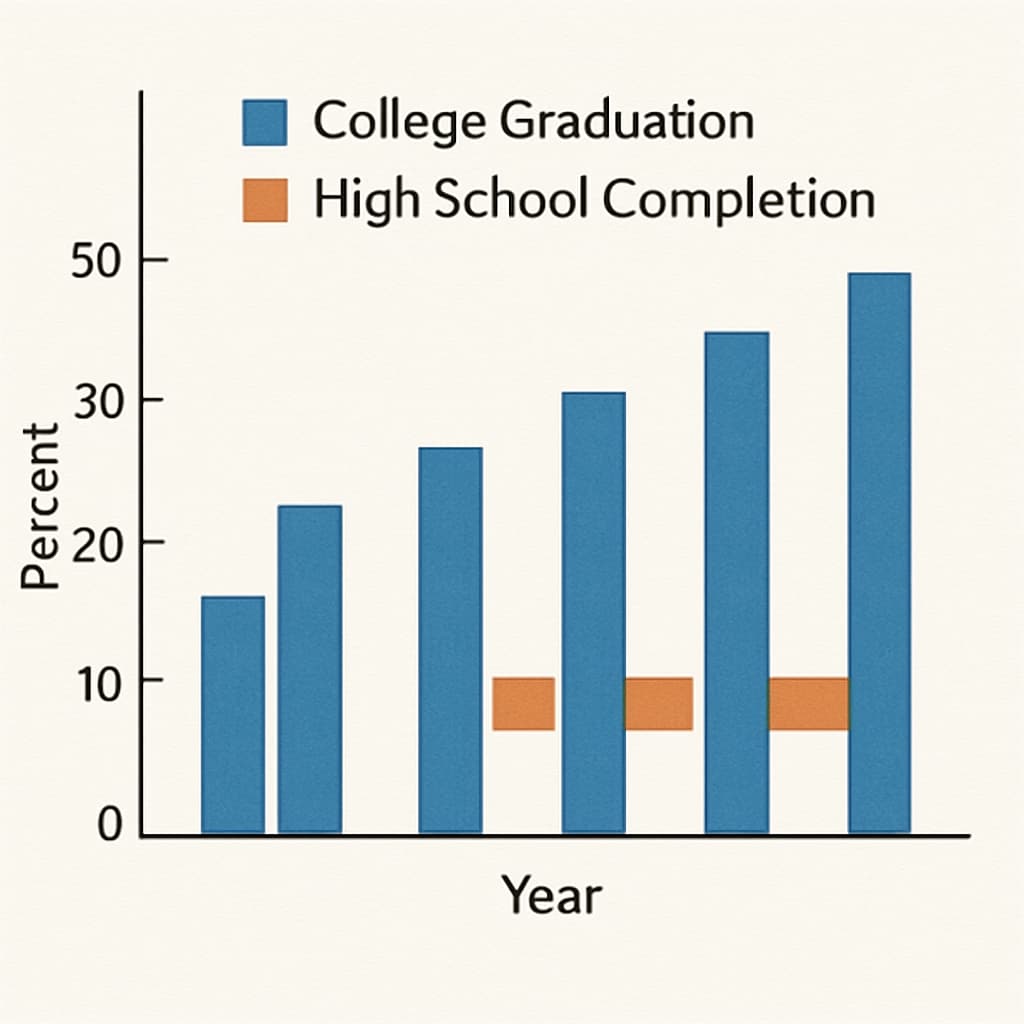In a striking example from Arizona, a job applicant with three college degrees was denied a government position due to the absence of a high school diploma. This case of “degree discrimination” has sparked discussions about the paradoxical nature of education qualifications in employment. It underscores a fundamental issue: the evaluation of academic achievements and their real-world application does not always align. As a result, this situation raises important questions about the systemic flaws in educational credentialing and the broader implications for job market policies.

When Degrees Are Not Enough
The Arizona case brings to light a structural inconsistency in how qualifications are valued. It seems counterintuitive that three college degrees—an obvious indicator of advanced education—could be dismissed simply because a high school diploma is missing. This paradoxical emphasis on a less advanced credential reveals a rigid and outdated employment policy. For example, many employers use high school diplomas as a baseline requirement, often overlooking the fact that higher education typically serves as a de facto replacement for earlier milestones.
One might argue that this policy is designed to standardize candidate evaluation. However, it inadvertently penalizes individuals who may have pursued alternative educational paths. For instance, some students bypass high school graduation by earning equivalency credentials like the GED (General Educational Development test) or directly entering higher education programs. These paths, while nontraditional, still demonstrate academic rigor and capability.
How Employment Policies Fall Behind
This case also highlights how employment policies fail to evolve alongside educational trends. Over the past few decades, the accessibility of higher education has significantly increased. According to Encyclopaedia Britannica, college enrollment rates have surged globally, with more individuals attaining advanced degrees than ever before. Yet, many hiring practices remain rooted in outdated frameworks that prioritize high school diplomas.
As a result, individuals who surpass these traditional benchmarks find themselves at a disadvantage. This creates a clear disconnect between an applicant’s qualifications and their perceived eligibility for certain roles. Furthermore, it perpetuates an outdated narrative that undervalues the transformative potential of higher education and fails to recognize its role in fostering specialized knowledge and skills.

Reevaluating Education Requirements
To address these systemic issues, several reforms should be considered:
- Redefining baseline qualifications: Employers should reassess the relevance of high school diplomas when evaluating candidates with higher academic achievements.
- Emphasizing skills over credentials: A skills-based approach could better match candidates’ capabilities with job requirements, reducing the emphasis on formal education milestones.
- Updating K-12 and higher education alignment: Better integration between these systems could create clearer pathways for students pursuing nontraditional educational routes.
- Employer education: Hiring managers should be trained to recognize diverse educational journeys and focus on practical competencies.
These changes could not only improve hiring efficiency but also promote a more inclusive and flexible job market. The Arizona case demonstrates that clinging to rigid credential requirements can lead to missed opportunities for both applicants and employers.
Conclusion: The Need for Structural Change
The paradox of valuing a high school diploma over multiple college degrees reflects deeper flaws in how we evaluate education. It reveals a pressing need for systemic reforms to align employment policies with modern educational realities. By prioritizing skills, adaptability, and specialized knowledge over outdated requirements, employers can create more equitable opportunities and better utilize the diverse talents of the workforce.
Readability guidance: This article employs short paragraphs, active voice, and a logical structure to ensure clarity. External references provide authoritative context, while the proposed solutions are presented in a concise list format for better readability.


